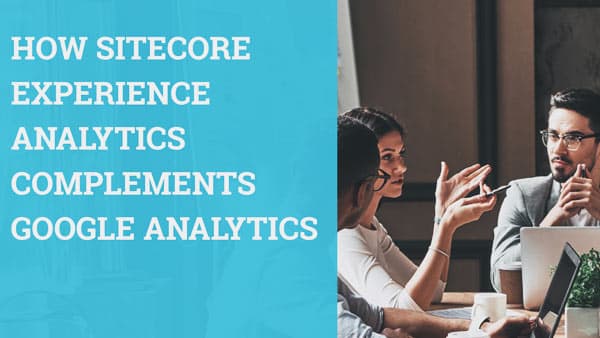
Artificial Intelligence + Sitecore




Aug 21, 2019
This is my favorite topic. [Workwise, anyway.]
I remember the first time I heard the term ‘marketing automation’. I never liked the term—it was clearly invented by someone who thinks marketing is a purely mechanical process. (Though it’s better than the elderly lady who thought marketing was a job at a supermarket.) However, very quickly we saw marketing begin to evolve into a more complex digital beast. It was getting more exciting—and more challenging to manage. Marketing Ops was born.
And then came ‘big data’. While some sources say the term was coined by Roger Mougalas from O’Reilly Media in 2005, there’s a deck from 1998 by John R. Mashey, Chief Scientist at SGI, called “Big Data…and the Next Wave of InfraStress” I love the subtitle “Technology Waves: NOT technology for technology’s sake. It’s what you do with it. But if you don’t understand the trends - IT’S WHAT IT WILL DO TO YOU.” (An interesting read.)
Fast forward to 2019; years later and Big Data has become more like Astonishing Data and in some cases, Overwhelming Data. So what’s a marketer to do? Before we get to Sitecore, let’s talk a bit more about data…
UU-Data (Useful and Usable Data)
Do you know if your data is useful and usable? Simply put, can you use it to make decisions or get useful insights into your business? Do you have permission to use the data? Is there anything unethical about using the data? Starting to sense the complexity here? Good.
Now, you’ve got lots of questions to ask before you can take full advantage of the data you have. I’ll give you a few to get you started thinking of the questions meaningful to your situation:
- How will you collect data?
- How will you store all this data?
- How will you manage all this data?
- How will you interpret it?
- Learn from it?
- … dispose of it?
Misunderstandings about data and machine learning.
It’s not your fault if you don’t fully understand AI or machine learning—it’s still relatively new in the marketing world. It's important to set realistic expectations for yourself and your clients. Start slowly and build—there is no instant magic. You cannot pour all your data into a big bowl and use machine learning to instantly sort everything out. The algorithms need data and time to learn. ‘Learning’ sometimes gets overlooked, yet learning is the point.
The machine has no innate knowledge. It has to learn.
The machine has no innate ability to predict what you want.
Everyone has AI!
The next confusing piece of the AI/ML puzzle is that the number of martech platforms on the market is dizzying … and so it’s no surprise that the intense competition has driven many martech platforms to begin integrating and selling AI features. In fact, just this summer, Salesforce announced Marketing Cloud enhancements—Einstein AI capabilities—which will help marketers send emails at the right time, with the right frequency, with the best images, and the right messages. Google offers BigQuery ML, which it claims “democratizes the use of ML by empowering data analysts, the primary data warehouse users, to build and run models using existing business intelligence tools and spreadsheets” using SQL—without needing to know Python or Java. And the list goes on.
Yes yes, Sitecore.
So back to Sitecore… (I haven’t forgotten why we’re here 🙂). You’ve got clients on Sitecore—or clients looking for a platform to help deliver a great customer experience. And your clients have many data sources or data source opportunities. With Sitecore’s Cortex (included in Sitecore's Experience Platform), you’ve got a platform that can collect data—and use that data for personalization, predictive personalization, and campaign optimization. Which means you can start entering the world of AI in a meaningful and useful way.
Being the glorious platform it is, Sitecore brings together the real needs of customers. From the content marketing platform to the deployment and use of content through the Experience Platform; this is a place where Machine Learning will certainly be useful to marketers. There’s big potential for learning and using what you learn to deliver better content—and better experiences. I’m really excited about the possibilities—and am looking forward to the evolution of Cortex.





